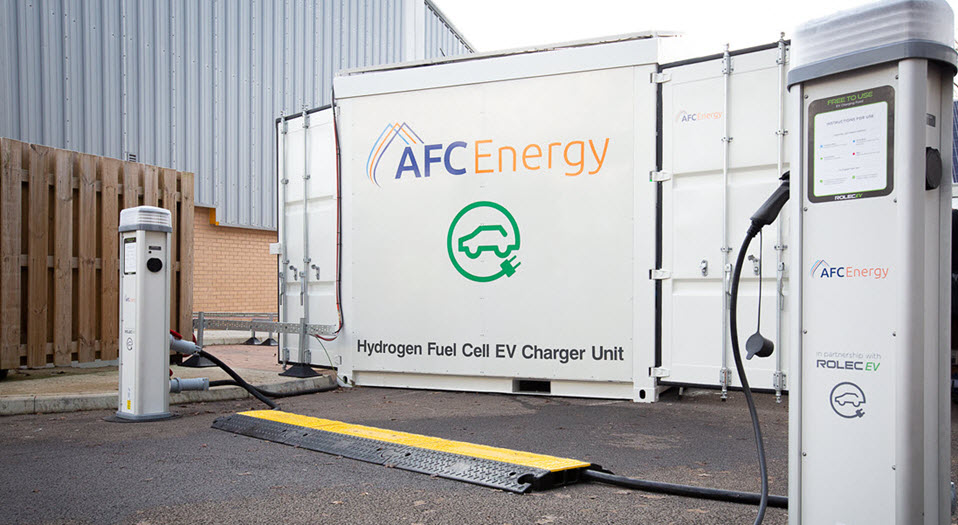
The debate between hydrogen-powered and battery-powered electric vehicles (EVs) has lasted years and doesn’t seem to be subsiding anytime soon. As this dispute continues, two companies have recently announced something of a hybrid approach. Hydrogen fuel cell producer AFC Energy has teamed up with ABB to make fuel cell-powered fast chargers for EVs.
Instead of replacing battery-powered EVs with hydrogen vehicles, this partnership brings hydrogen power to cars. The chargers will use hydrogen fuel cells to generate the electricity that will charge users’ battery-powered vehicles. Neither company has said how fast the chargers will be, but if they’re like ABB’s current products, they could add 100 kilometers of range within eight minutes.
The companies hope to deploy these chargers in the U.K., Europe and the U.S. in the second half of 2021.
Hydrogen Fast Chargers Make EVs More Viable
Battery-powered vehicles, like Tesla, have emerged as the most popular form of EV. Despite being the generally favored type, they still pale in comparison to the popularity of fossil fuel-powered cars. Inconvenience is perhaps their most significant barrier to widespread adoption, but hydrogen charging stations could change that.
Standard house outlets can take as long as 12 hours to charge some electric cars. Fast chargers, like ABB and AFC’s hydrogen solution, take just a matter of minutes. Since fuel cells require little maintenance, they can provide this speed more consistently than other fast chargers.
Hydrogen fuel cells don’t rely on an electric grid, so any disruptions won’t affect them. Traditional charging stations can’t say the same. With these hydrogen options, EV owners wouldn’t have to worry about service issues affecting whether they can recharge.
Green Transportation Is Becoming Greener
The other leading benefit of hydrogen-powered fast chargers is that they’re more sustainable. One of EVs’ most significant shortcomings is that the electricity they use is typically nonrenewable. Most energy grids are fossil fuel-powered and consume 195 billion gallons of water a day to cool.
If EVs use chargers that draw from municipal electric grids, they’re indirectly contributing to carbon emissions. Powering chargers with hydrogen instead removes this connection to fossil fuels. The only emission from fuel cells is water, so EV owners can use these systems to make their cars even more sustainable.
Many hydrogen production facilities also use fossil fuels, but they don’t have to. Green hydrogen, which comes from renewables, is experiencing considerable growth globally, so it could easily fuel these chargers. If ABB and AFC use green hydrogen, it could lead to truly carbon-free road travel.
Hydrogen Power Continues to Advance
Although it’s far from a new technology, hydrogen power has seen relatively low adoption compared to other renewables. That’s starting to change as recent advancements make fuel cells more efficient and affordable. These fast chargers are one more step in the right direction for hydrogen power.
The debate between battery and hydrogen cars may miss the point. It will likely take both technologies to push the world’s drivers toward sustainability, and that’s what these chargers aim for. Though these technologies’ impact is still uncertain, the future of hydrogen power looks bright.


Jane Marsh
Jane Marsh is the Editor-in-Chief of Environment.co. Jane covers topics related to climate policy, sustainability, green technology, renewable energy and more.
Read the most up to date Fuel Cell and Hydrogen Industry news at FuelCellsWorks




